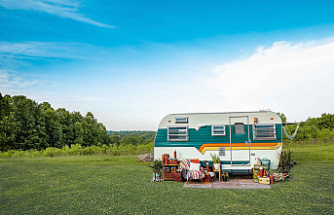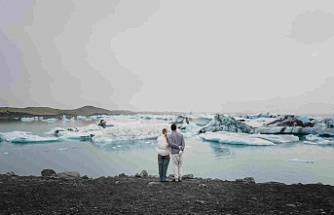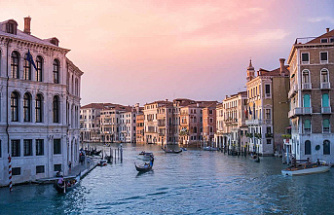sometime shortly after midnight, the lion roars, over the pandemic of a sudden. A shiver creeps over the damp skin. The animal can not stand more than a couple of antelope jumps behind the wall of the Tent. Suddenly, the drowsy guest from Europe is awake and in the middle of Africa. Even the peaceful grunts of the hippos is silenced. Only the notorious Quack of the reed frogs permeates the night.
even Chinese business people flitted in safety suits that let you see how astronauts look like, through the airport of Addis Ababa; a robot to measure the temperature of exhausted passengers upon arrival in Rwanda; a silent sister in polyester case with a SURGICAL mask and plastic visor poked to the Virus in the throat – re-Test in any of the rooms on the third floor of a City hotel in Kigali. Anyone who wants to overcome in these days of limits, will be closely tested, and may – he may be traveling – it's pretty sure to be not a carrier of the Covid-19 Virus.
nature out of joint
With the Roar of the lion, the elaborate, costly and time-consuming procedure forget. Since it is so louse brought the tent accordingly in a Safari, and the only bit of anxiety in a world out of joint is a beast, you know very well that the tourists behind the tent walls into the prey scheme fit. Even if you have actually forgotten to close the tent properly.
early in The Morning are gone, the wild thoughts. The lion is, apparently, disappeared. In the incredibly peaceful lying there Rwanyakizinga-lake in front of the tent, bathing in a river, horse mother and her child. Sheet chicken dance on a floating carpet plants. Somewhere, an African fish eagle calling his familiar call to the Beloved. And once it is there and is not soft from now on is the happiness to be back in the Wilds of Africa, a feeling that you longed for had for months, after weeks and months of the lock downs.
they're back: herd of Elephants in the Akagera national Park. : Image: Win SchumacherDrew Bantlin like to smile about these starved urbanites who are only embarrassed. The zoologist has spent the Lockdown in the Wilderness of Akagera – to-face after all the months of a foreign people is almost exotic. Fear of the Virus is far from him because of the state regulation in Rwanda provides that everyone who enters a national Park, must be shown to be tested negative.
Just the native Americans from Arizona, with two local employees on the go to watch in the North of the reserve, two rhinos, which he has equipped with a new transmitter. The guardian places the animals with the help of an antenna. Olmoti, the Nashornkuh, the track just doesn't seem to give the researcher and his Team today, a lot of attention. She warps right back into the undergrowth, after having briefly crossed the path of men. "You get out of the way," says Bantlin, the animals know very well, "that's good!"
The Rhino from Zurich
Olmoti is actually Swiss. She was born in the Zoo in Zurich, Switzerland and lives since June 2019 in the African Wilderness. Previously, she met with four other rhinos in a Czech Safari Park. From there, the group was brought for re-introduction in the Akagera national Park, Rwanda. "It was the largest action of this kind at all," says Bantlin. After a settling-in phase in a gate, the rhinos are now living in the wild, but constantly accompanied by Bantlin and his Team. "The last Rhino was poached in Akagera 2007," says Bantlin, "in 2001, cattle had shepherd's already the last lion to be killed." The last animal was probably of shepherds poisoned, who feared for their flocks. As a result of the 1994 genocide, among other things, the return of refugees from Uganda, had transformed the once vast territory in a cattle pasture. Elephant, Buffalo and antelope were decimated by poachers. Akagera was deprived of a large part of his famous wild wealth, Rwanda last savanna Ecosystem threatened to disappear forever.
Date Of Update: 30 November 2020, 22:20











